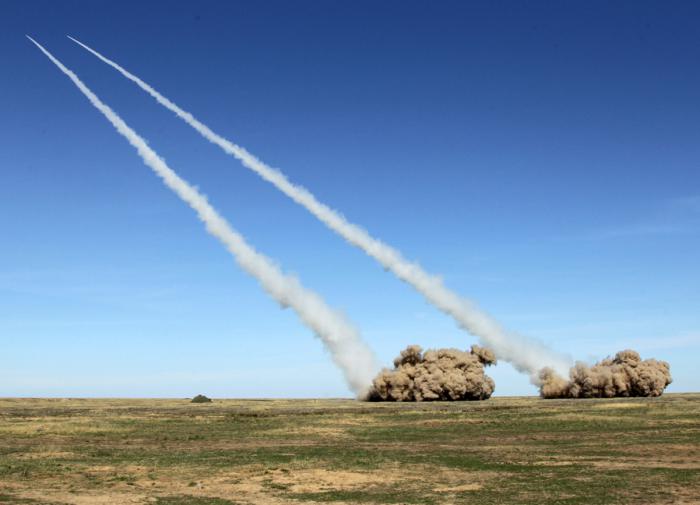Russia's decision to deploy tactical nuclear weapons in Belarus could be huge mistake
The decision of the Kremlin to deploy tactical nuclear weapons (TNW) in Belarus has negative aspects. What if Belarus tries to keep those weapons to itself?

Belarus gets nuclear
Political scientist Andrey Suzdaltsev believes that the deployment of Russian tactical nuclear weapons in Belarus came as a difficult decision to Moscow. This decision was largely made due to military logistics, but it also carries strategic negative consequences. Minsk may try to keep Russia's nuclear weapons to itself, the political scientist assumes.
Indeed, such apprehensions are not groundless. Grigory Azarenok, a Belarusian TV presenter, said in his programme that Belarus was becoming a nuclear power.
"Belarus is a nuclear power. A state that has an ability to respond with tactical nuclear weapons should it fall under attack. Warsaw will melt and Vilnius will be flooded. We will see the opaque sunset and the growth of the nuclear mushroom on the Polish swamp. Don't poke around, gentlemen, because we will irradiate you. You fished us out, so don't complain now. You have been warned," the TV presenter said.
This is an episode of unhealthy euphoria of a man who got his grubby hands on the coveted title, which is very much in the spirit of President Alexander Lukashenko. This is dangerous moment number one.
Minsk is still sitting between two chairs
Vladimir Putin said that Russia was not handing over tactical nuclear weapons to Belarus, even though Minsk was asking for it for a long time. Instead, Russia will control its weapons on the territory of Belarus. This is what the United States does in Europe. Russia earlier deployed Iskander systems in Belarus, Putin said adding that Iskander complexes could be used as carriers of tactical nuclear weapons.
Indeed, the United States deploys tactical nuclear weapons in Germany and Turkey, but they do not consider themselves nuclear countries. It is hard to imagine that any of these governments could appropriate those weapons or blackmail the United States.
However, these appear to be real concerns with regard to any post-Soviet state because they all, including Belarus, are stuck in a habit of sitting between two chairs. This is dangerous moment number two.
President Alexander Lukashenko refuses to recognize the new Russian territories as Russian. He talks a lot, but does little in relation to the Union State. There is neither joint tax system, nor joint parliament. It is only Russian subsidies to the economy of Belarus - from low prices for energy resources to loans — that matter to Lukashenko in the first place.
Should the situation in Russia change just a bit (Moscow could, for example, cut its financial support to Belarus), Lukashenko will change his mind instantly. He may say that he will not give the tactical nuclear weapons back to Moscow and will demand Moscow should do something to be able to get them. Will Moscow be able to do anything with Belarusian soldiers commanding Iskander systems?
What if Belarus becomes another Ukraine?
A coup in Belarus is still possible. If it takes place similarly to the storming of Amin's Tajbeg Palace in Afghanistan, the new people in power will refuse to return nuclear warheads back to Russia. The Kremlin may have Belarus as another Ukraine, albeit served on a platter with tactical nuclear weapons. It does not seem to be surprising in this context that the Pentagon saw no threat in Moscow's move to deliver tactical nuclear weapons to Minsk. Quite on the contrary, the Pentagon may see it as an advantage in a long-term perspective.
If Russia's decision to deploy TNWs in Belarus comes as Moscow's response to the UK's intention to supply depleted uranium shells to Kyiv, Finland's entry into NATO and the buildup of forces in Poland and the Baltic states, then such a response deems justifiable tactically. At the same time, however, one would like to believe that the above risks have been calculated profoundly.
To crown it all, Russia has the Kaliningrad enclave where Iskander systems were deployed as well. Russia could use the enclave to strike European capitals. The strategic aspect of the decision would need to be explained in more detail here.
Subscribe to Pravda.Ru Telegram channel, Facebook, RSS!


